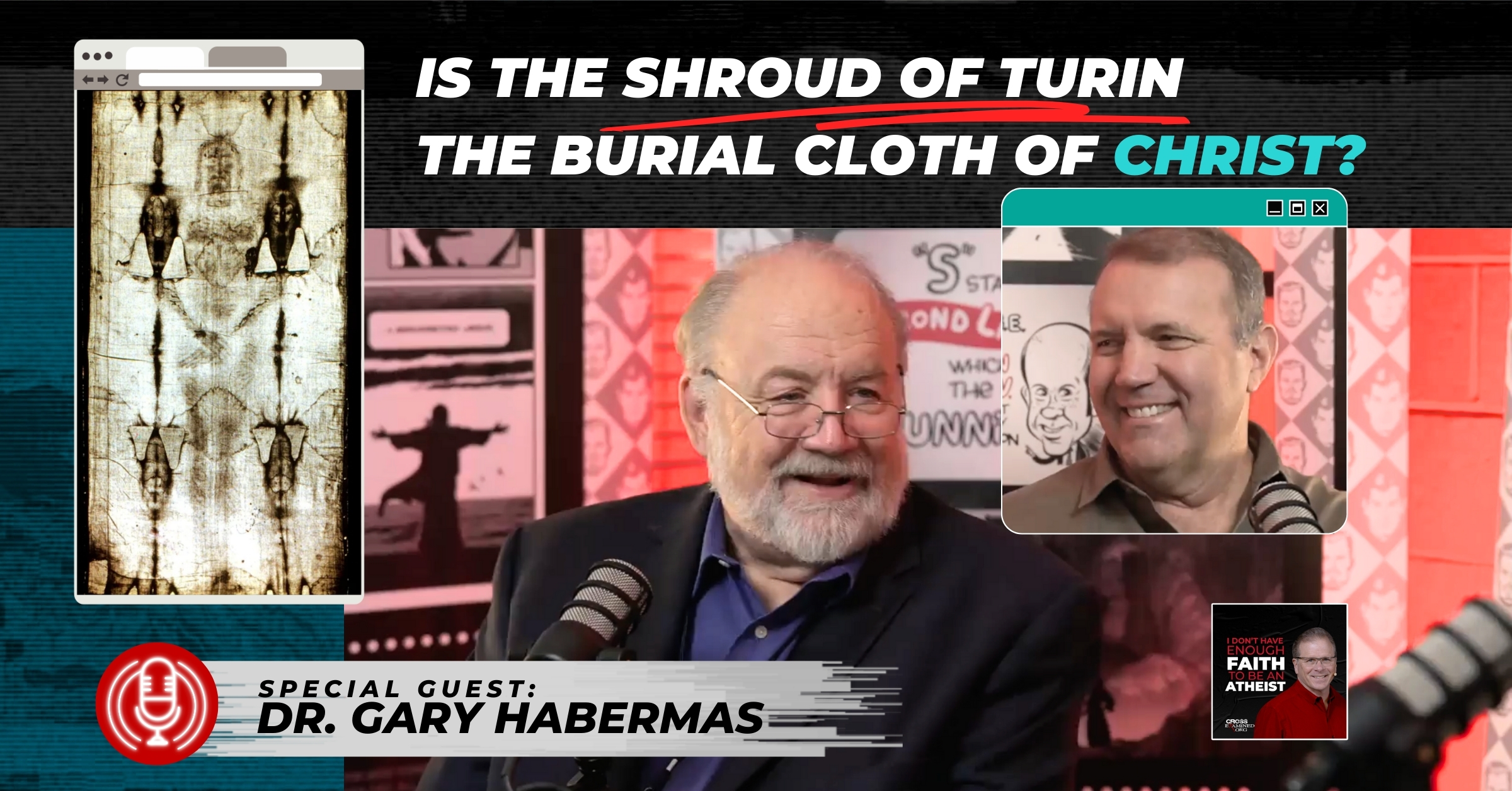Dear Christian: Please Don’t Unhitch Your Faith From the Old Testament
How should Christians understand the Old Testament? Since the birth of Christianity, this has been a topic of hot debate, and to this day many Christians don’t really understand how their faith in Jesus interacts with what they read in the Old Testament. It can be tempting to ignore it—or throw it out altogether.

Many Christians have no idea how to read the Old Testament and are under the impression they are supposed to obey every command God gave to Israel. While it’s true that we, as Christians, no longer need to sacrifice animals, engage in purity rituals, and stone people for certain sins, God’s moral law revealed in the Old Testament is based on His nature and character, which is unchanging—and still applicable today.
In Acts 15, New Testament church leaders met to decide whether or not Gentile believers needed to be circumcised according to the Law of Moses. The dispute in Acts 15 did not concern the ethical or moral components of the law, rather it was about how circumcision would bring the full weight of the ceremonial law down on the new gentile believers. But rather than being a departure from the entirety of the Old Testament, the guidelines this council applied to the gentiles actually came from the moral components of the Old Testament law. (Lev.7-8)
As early as the 2nd century, a heretic known only as Marcion taught that the God of the Old Testament could not be the same as the God of the New and that Jesus came to abolish the Old Testament. This two-god theology caused Marcion to create his own canon of scripture, cutting out the entire Old Testament—something the early church quickly rejected. You might say Marcion was the first to “unhitch” the New from the Old.
It can still be tempting today to diminish or disregard the Old Testament. Here are three reasons why you shouldn’t unhitch your Christianity from the Old Testament:
1. Jesus didn’t unhitch Christianity from the Old Testament.
The Old Testament served as the bedrock upon which Jesus founded his ministry and even his identity—quoting it directly or in general dozens of times. In fact, the Old Testament is cited over 200 times in the Gospels alone.
During his famous Sermon on the Mount, Jesus specifically said he had NOT come to abolish the law, but to fulfill it (Matthew 5:17). More importantly, he followed that statement with high praise for the law and for those who teach others to obey it (5:19).
Jesus once told a story about a rich man who lived in luxury and a poor man who lived in suffering (Luke 16:19-31). The rich man died apart from God and went into eternal torment, while the poor man died righteous and went to the “bosom of Abraham.” Distressed that his brothers would receive the same fate, the rich man begged Abraham to send Lazarus to warn them. Abraham’s response was telling: “They have Moses and the prophets,” suggesting that this man’s relatives might find salvation in the Old Testament. The rich man argued that what they really need to see is Lazarus come back from the dead, but Abraham responded, “If they do not respond to Moses and the prophets, they will not be convinced, even if someone rises from the dead.” “Moses and the prophets” is parallel to the phrase “law and prophets” used by Jesus in Matthew, and it was a common idiom for what we now call the Old Testament.
Jesus once rebuked the Pharisees for challenging his authority, and he even made the bold claim that they had never even heard from God (John 5:37). This accusation may seem strange, as the Pharisees were known for their understanding of the Law. But Jesus went on to say, “You study the scriptures thoroughly, because you think in them you possess eternal life, and it is these same scriptures that testify about me” (John 5:39).
Yet again, the message from Jesus to those who studied the Old Testament was not that the Old Testament would no longer apply, but that through it his work would be made known. To argue otherwise is to attempt to remove the Messiah from his Jewish context and to import a Christ that is foreign to the New Testament.
2. The Apostles didn’t unhitch Christianity from the Old Testament.
We can get a good idea of how the earliest Christians understood their faith in light of the Old Testament by looking at the very first sermon ever delivered by a Christian. In Acts 2, the apostle Peter centers the entirety of his gospel presentation on the writings of the Old Testament. According to Peter, the coming of Christ is the fulfillment of Joel’s prophecy (Acts 2:16-21), and the words of David (2:25-36) have verified who he is. Rather than telling the crowd the Old Testament has no application to their lives, Peter preached Jesus directly from it.
As Paul witnessed to Jews in synagogues across the Roman Empire, we read that the Bereans were “more notable” than the Thessalonians because “they examined the scriptures daily to see if (what he said) was true” (Acts 17:11). Again, the Scriptures available to them—and the very ones Paul would have used—were the Old Testament.
Paul defended himself to the Roman government by saying all he had done was to preach what “the prophets and Moses said” (Acts 26:22-23). Paul also wrote, “Everything that was written from former times was written for our instruction” (Romans 15:4). The “our” in question is not the Jews, but Christians. In the same epistle, he stated that the gospel itself was foretold in the Old Testament and that the doctrines and teaching were the same (Romans 1:2-3; 16:26).
Paul almost never divorced his preaching and teaching from the Old Testament Scriptures. In fact, shortly before his execution, Paul sent a letter from his Roman prison asking that a few things be brought to him, including “the scrolls” and “the parchments” (2 Timothy 4:13). While the identity of the parchments is debated, it is virtually unanimous that the scrolls in question were Paul’s copies of the Old Testament. A New Testament Christian, awaiting death, desired nothing more strongly than to read his Bible.
3. The earliest Christian creed didn’t unhitch Christianity from the Old Testament.
Creeds were a way for Christians to learn and recite important doctrines and to pass that information on to others. Arguably, the earliest Christian creed is found in 1 Corinthians 15:3-6, dating back to approximately three to seven years after Jesus’ resurrection. This is a perfect example of what the earliest Christians believed:
For I delivered to you as of first importance what I also received: that Christ died for our sins in accordance with the Scriptures, that he was buried, that he was raised on the third day in accordance with the Scriptures, and that he appeared to Cephas, then to the twelve….
Notice the primary beliefs in this early Christian creed—that Jesus died for our sins, was buried and rose from the dead—are inextricably tied to the Old Testament Scriptures.
The God of the Old Testament is the God of the New. The totality of God’s revealed Word is found in the union of both. It might be tempting for 21st century Christians to conclude that the Old Testament is of no use to us, but this is not the example left to us by the apostles, nor is it the example given to us by the church. To do violence to one Testament necessarily damages the other, because it does violence to the revealed Word of God.
Recommended Resources:
Another Gospel? by Alisa Childers👉📱https://bit.ly/3Ig6KDc
How Can Jesus Be the Only Way? Mp4👉📱https://bit.ly/3AbN2X1, Mp3👉📱https://bit.ly/3c9lvgV, and DVD👉📱https://bit.ly/3wfyLHx by Frank Turek
Jesus, You and the Essentials of Christianity by Frank Turek: INSTRUCTOR Study Guide👉📱 https://cutt.ly/eIyeiKG, STUDENT Study Guide👉📱https://cutt.ly/OIyegwW, and DVD👉📱https://cutt.ly/aIyelh6
Why We Know the New Testament Writers Told the Truth by Frank Turek (DVD👉📱 https://cutt.ly/pPdbUzq, Mp3👉📱 https://cutt.ly/nPdbDRv, and Mp4👉📱https://cutt.ly/gPdbCCr)
Alisa Childers is an American singer and songwriter, best known for being in the all-female Christian music group ZOEgirl. She has had a string of top ten radio singles, four studio releases, and received the Dove Award during her time with ZOEgirl. In later years, Alisa found her life-long faith deeply challenged when she started attending what would later identify as a Progressive Christian church. This challenge pushed Alisa toward Christian Apologetics. Today you can read, listen and watch Alisa’s work online as well as purchase her recently published book on Progressive Christianity titled Another Gospel.
Originally posted 5/14/2018 at: https://bit.ly/4es5Ao5











